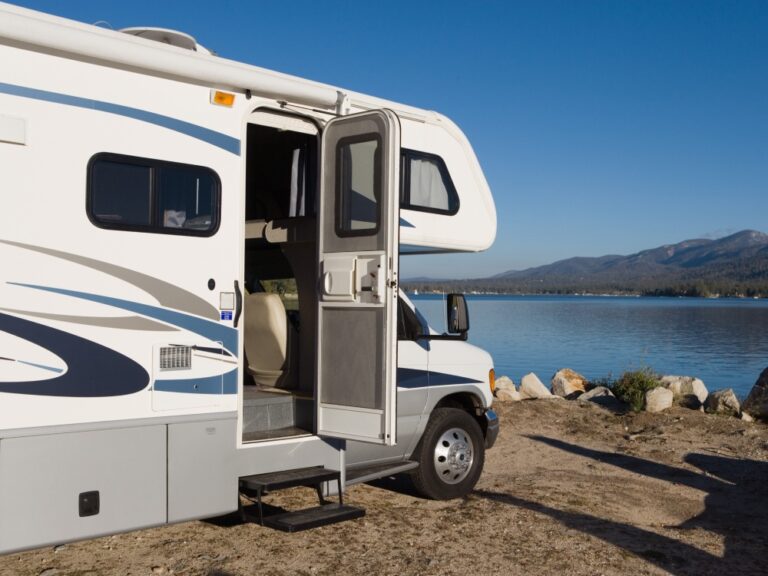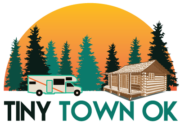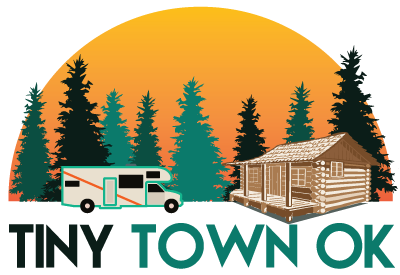
Top Tips for Successful RV Trip Planning: Everything You Need to Know
Planning an RV trip is an exciting adventure, but it requires careful thought and preparation to ensure everything goes smoothly. From choosing the right campsite to maintaining your RV, a well-planned journey can make all the difference in your experience. Whether you’re a seasoned RV traveler or planning your first road trip, the following tips and advice will guide you through the entire process, from start to finish.
Why RV Trip Planning Is Important
RV trip planning involves more than just packing up your RV and hitting the road. It includes everything from preparing your vehicle to choosing the best campgrounds to understanding RV park etiquette and ensuring safety throughout your journey. A little bit of planning goes a long way to avoid stress and keep the trip running efficiently.
Planning Your RV Trip
Before you set out, it’s crucial to plan your trip in detail. This ensures that you are well-prepared for the road ahead and can maximize your time exploring.
Set a Budget
First, establish your budget. Consider all expenses such as fuel, campsite fees, RV park reservations, meals, and any special activities you want to include. RV camping can be an affordable option, but careful budget management will keep your trip stress-free.
Choose Your Destination and Route
The beauty of RV travel lies in the freedom to explore. When selecting your destination, think about what interests you most. Are you drawn to national parks, lakesides, or cities? Once you’ve picked a destination, plan your route carefully to avoid overly busy highways or difficult terrain. Tools like RV-specific GPS apps can help you find the best routes suited for RVs, including low-clearance roads or steep inclines.
Make Reservations in Advance
While spontaneity is a huge perk of RV travel, securing a campsite in advance can save you a lot of stress, especially in popular locations. Whether you’re staying at an RV park like Tiny Town OK Cabin Rentals or another campground, making reservations ensures that you’ll have a spot waiting for you.
RV Camping Guide: Choosing Campsites and What to Pack
A good camping spot can make or break your trip, so it’s important to choose wisely. With so many options available, it’s essential to understand what kind of camping experience you want.
Selecting the Right Campsite
When choosing a campsite, consider the following factors:
- Location: Do you want a remote, peaceful experience, or are you looking for a campground with more amenities? If you’re planning a trip near Beavers Bend State Park or other outdoor attractions, make sure the campsite offers easy access to hiking, fishing, or other activities.
- Size and Layout: Make sure the site is large enough to accommodate your RV comfortably. Check for hookups for electricity, water, and sewage if needed.
- Accessibility: Ensure the campground has accessible roads and sites for your RV size. Many RV parks offer sites designed specifically for larger RVs.
What to Pack
Packing for an RV camping trip is slightly different from other types of camping. Here’s a list of essentials to ensure you’re prepared for the journey:
- RV Essentials: Don’t forget a power cord, water hose, leveling blocks, sewer hose, and RV cleaning supplies.
- Camping Gear: Bring outdoor furniture, a canopy or awning for shade, and a portable grill or campfire supplies.
- Personal Items: Stock up on toiletries, sunscreen, medications, and extra blankets for colder nights.
- Safety Gear: A first-aid kit, flashlight, fire extinguisher, and a roadside emergency kit are vital for peace of mind.
RV Camping Tips: Practical Advice for the Journey
Now that you’ve got your route, campsite, and gear, it’s time to hit the road. Here are a few practical tips to keep your journey smooth and enjoyable.
Be Flexible with Your Schedule
Even the best-laid plans can hit snags. If you have a day of heavy rain or your RV develops a small issue, be flexible with your schedule. Embrace the spontaneity and explore nearby attractions that you might not have considered initially.
Check Weather and Road Conditions
Before heading out each day, check weather forecasts and road conditions. This will help you avoid bad weather, traffic jams, and road closures. If you’re traveling to areas with unpredictable conditions, like mountains or deserts, adjust your plans accordingly.
Manage Your RV’s Power and Water Usage
Conserve electricity and water by using your RV’s systems efficiently. Keep an eye on your water tank levels and use the campground’s facilities when possible. Also, turn off appliances when not in use to save power.
Ensuring RV Safety: Safety Checks Before, During, and After Your Trip
Safety should always be a top priority during any RV trip. Here’s how to ensure you’re prepared for any situation:
Pre-Trip Safety Checks
Before you hit the road, give your RV a thorough inspection. Here’s what to check:
- Tires: Ensure that your tires are in good condition, properly inflated, and free of cracks or damage.
- Brakes: Test your brakes to ensure they are functioning properly.
- Fluid Levels: Check oil, coolant, and brake fluid levels. Make sure everything is topped up before the trip.
- Battery: Test the RV’s battery and charge it if necessary.
During the Trip
While traveling, periodically check your RV to make sure everything is in order. Pay attention to:
- Tire Pressure: Hot weather or long hours on the road can cause tire pressure to fluctuate.
- Engine Temperature: Keep an eye on the engine temperature gauge to avoid overheating.
- Battery and Electrical Systems: Periodically check that your RV’s electrical system is working smoothly.
Post-Trip Safety Checks
After your trip, give your RV a thorough post-trip check. Look for any signs of wear and tear, clean your RV thoroughly, and perform any necessary maintenance before your next journey.
RV Park Etiquette: Do’s and Don’ts at Campgrounds
One of the most important aspects of RV camping is respecting your neighbors and following RV park etiquette. Here are some essential do’s and don’ts:
Do’s of RV Park Etiquette
- Be Courteous to Your Neighbors: Keep noise levels low, especially during the night and early morning.
- Follow Check-In and Check-Out Times: Arrive and depart at the designated times to ensure smooth operation for the campground.
- Clean Up After Yourself: Always leave your campsite cleaner than you found it. Dispose of trash properly and take care of your RV’s waste.
- Respect Common Areas: If the RV park has communal spaces, such as restrooms or laundry rooms, be considerate of others using these spaces.
Don’ts of RV Park Etiquette
- Don’t Block Others’ Sites: Be mindful of your RV’s size and space. Don’t park or set up camp in a way that blocks your neighbor’s access.
- Avoid Loud Music or Conversations: Keep the noise level down, especially after dark. Not everyone wants to hear your favorite tunes or late-night discussions.
- Don’t Let Pets Roam Freely: Keep your pets on a leash and clean up after them. Many RV parks are pet-friendly, but you need to be responsible for your furry friends.
Tiny Town OK Cabin Rentals: Your Ideal RV Camping Destination
Tiny Town OK Cabin Rentals and RV Park, located in the serene landscape of southeast Oklahoma, offers the perfect destination for RV travelers. Whether you’re looking to stay in one of our cozy cabins or park your RV next to the natural beauty of Beavers Bend State Park, our family and pet-friendly environment is the perfect place for your next adventure. We’ve built a community focused on providing a spirit of excellence and hospitality.
Ready to plan your next RV trip? Reach out to us at (918) 932-2141 to learn more about our RV park, cabin rentals, and how we can make your vacation special.

